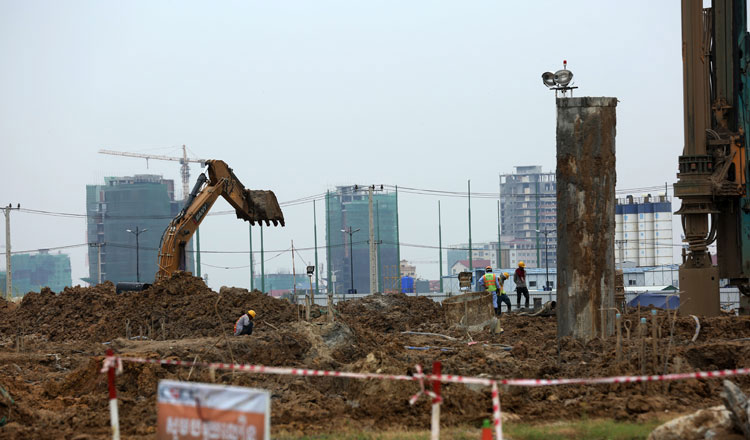[ad_1]
The World Bank in its report on Cambodia said that the COVD-19 pandemic hit had hit the construction industry badly with the residential construction activity hit especially hard.
In 2022, only 5 percent of the expected supply of new condominium units were completed in the first quarter. New launches have slowed as the market tries to absorb the remaining stock.
Average sale prices of high-end condominiums continued to slide, while the prices of affordable and midrange condominiums stabilized. The condominium market was initially driven by foreign demand, given that locals were relatively new to living in high-rise residential buildings.
When the pandemic hit, foreign demand was interrupted. As a result, most FDI-financed property investment, especially in high-rise development projects in the urban centers such as Phnom Penh and Sihanoukville, were suspended.
Excess supply may have resulted in reduced foreign investor appetite for investing in property development projects. Approved FDI financing of property and real estate development declined from $1.78 billion in 2019 to $142 million in 2020.
Reflecting sluggish demand in the property and real estate market, approved construction permit value contracted by 66.0 percent during the first three months of 2022.
Similarly, approved construction permit area contracted by 67.9 percent y/y. During the same period, the volumes of basic construction material (cement and steel) imports mainly used for the construction industry contracted by 37.5.
For several years preceding the crisis, the construction and real estate sector had been the largest engine of growth, contributing more than a third of GDP growth. Sihanoukville was one of Cambodia’s urban centers that experienced the most rapid construction boom during the prepandemic period.
The seaside provincial capital received $5.8 billion of approved construction projects in 2019–20. As a result, it was transformed into an investment boomtown, initially backed by a casino industry.
Currently, tourism-dependent cities such as Siem Reap and Sihanoukville continue to struggle as international arrivals remain nowhere near the pre-pandemic levels.
While prospects remain uncertain, property booms, backed by entertainment industries, namely casinos and resorts such as those in Sihanoukville, may occur once the pandemic (and China’s zero-COVID-19 policy) is behind us.
After the moratorium on new casino permits in 2019, a Law on Management of Commercial Gambling was promulgated in November 2020, the first article of which aims to boost the economy, bolster tourism, collect revenue, and establish social safety and security.
In October 2021, the authorities issued a Prakas (regulation) on legal and regulatory requirements for obtaining, transferring, and extending casino and gambling licenses. Several ongoing large infrastructure projects mostly financed by publicprivate partnerships are being built to support the tourism industry.
Those include the new $2 billion Phnom Penh-Sihanoukville Expressway, a new $1.5 billion) Phnom Penh international airport, a new $880 million) Siem Reap international airport, and a new Koh Kong international airport $350 million. World Bank
- Tags: COVD-19 pandemic, World Bank
[ad_2]
Source link


